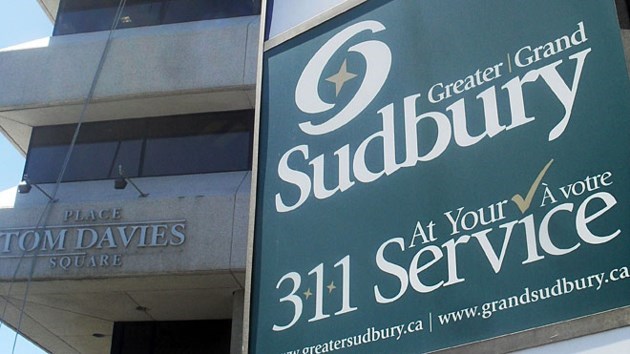City councillors approved a 4.8 per cent increase in water and sewer rates Tuesday evening, part of a 20-year plan to have users pay the full cost of operating and maintaining the system.
While the increase may seem high, it's lower than the 7.4 per cent council has approved in previous years, which would have bridged the gap much sooner. The province requires all municipalities to file plans detailing how they will get the system to pay for itself.
Councillors have historically rejected the bigger increases, which decades ago were pegged at three per cent, but most recently in 2011 at 7.4 per cent after a study by KPMG.
Ward 9 Coun. Deb McIntosh said Tuesday that only in the last term of council did the 7.4 per cent get approved, pointing out if previous councils had bit the bullet, the big increases would soon be coming to an end.
McIntosh asked Auditor General Ron Foster whether delaying the increases would pose a higher risk to residents who rely on the water system.
“Is there any risk to postponing our sustainability to 2040?” she asked. “We have old pipes under the ground – some are 50, 75 even 100 years old.”
“I couldn’t hazard a guess,” Foster replied, because he hasn't yet done an audit of the water and waste water system. They are scheduled for 2020 and 2021.
“I would look at that risk and assess it” when the audit is complete, he added.
CAO Ed Archer said it's only logical that delaying the increases would increase the level of risk, but said it is manageable.
“Overall, it would present lower risk than what we are doing today,” Archer said, when asked whether faster increases would make a difference.
But Ward 5 Coun. Bob Kirwan said they already went through a lengthy debate when they voted to go with the 4.8 per cent. The public is far more accepting of the lower increase, while finding the 7.4 per cent “alarming.”
“(Staff) told us it would be sufficient moving forward and I would like to stick with the 4.8 per cent,” Kirwan said.
And Ward 12 Coun. Joscelyne Landry-Altmann said part of the budget is considering a 1.5 per cent extra levy just for infrastructure, which includes the water system.
“To raise both at this point and time” is not something she would support, Landry-Altmann said.
“I’ll wait until next year” and see what happens with the special levy, McIntosh replied.
She also made a point of highlighting the large budget increases coming from outside boards. While councillors can ask police, Public Health Sudbury and others to reconsider their budget, they don't have the power to reject them or change them.
“I want to remind the public the police budget came it at 4.9 per cent,” McIntosh said.
And the health unit came in at 10 per cent higher as a result of provincial budget cuts, she said.
Ward 1 Coun. Mark Signoretti said he had no problems with the police budget, considering the challenges they are facing with the opioid crisis.
“Police in our community are needed,” Signoretti said. “I’m all in favour of the police budget.”
He was less happy with the number of full-time staff being added, with the city employing 2,120 people in 2020, compared to 2032 last year.
“Why are we increasing staffing levels?” he asked. “We don’t have the population growth to support it.”
More than half of the increase — 49 employees – are from Greater Sudbury Housing, he was told. The city used to give the group a grant, but took over the operations in 2019. So the 49 staff aren't new, but are now city employees instead of employees of Greater Sudbury Housing.
Police are adding eight staff, as they increase the size of the cyber investigations staff, and struggle to deal with a spike in police on sick leave as a result of PTSD legislation.
Another 20 employees are being added to what's called the “linear services” budget – a reference to employees who work on city infrastructure – roads, water, snow removal, etc.
Kevin Fowke, the city's GM of corporate services, said the new staff are a result of a new collective agreement signed with municipal workers.
The focus was on flexible working hours to respond to needs – watermain breaks, etc., while reducing the reliance on contractors who traditionally can respond to after-hours incidents.
In exchange for much more flexible staffing rules, the new employees will allow the city to respond with their own staff to more after-hours incidents, Fowke said.
That's important because it's tough to attract qualified part-timers, and to find contractors who do a satisfactory job.
“We’re contracting work in,” he said. “We’re making our services more sustainable and more predictable.”
Budget deliberations begin again today at 4 p.m., and are expected to conclude no later than Thursday.
